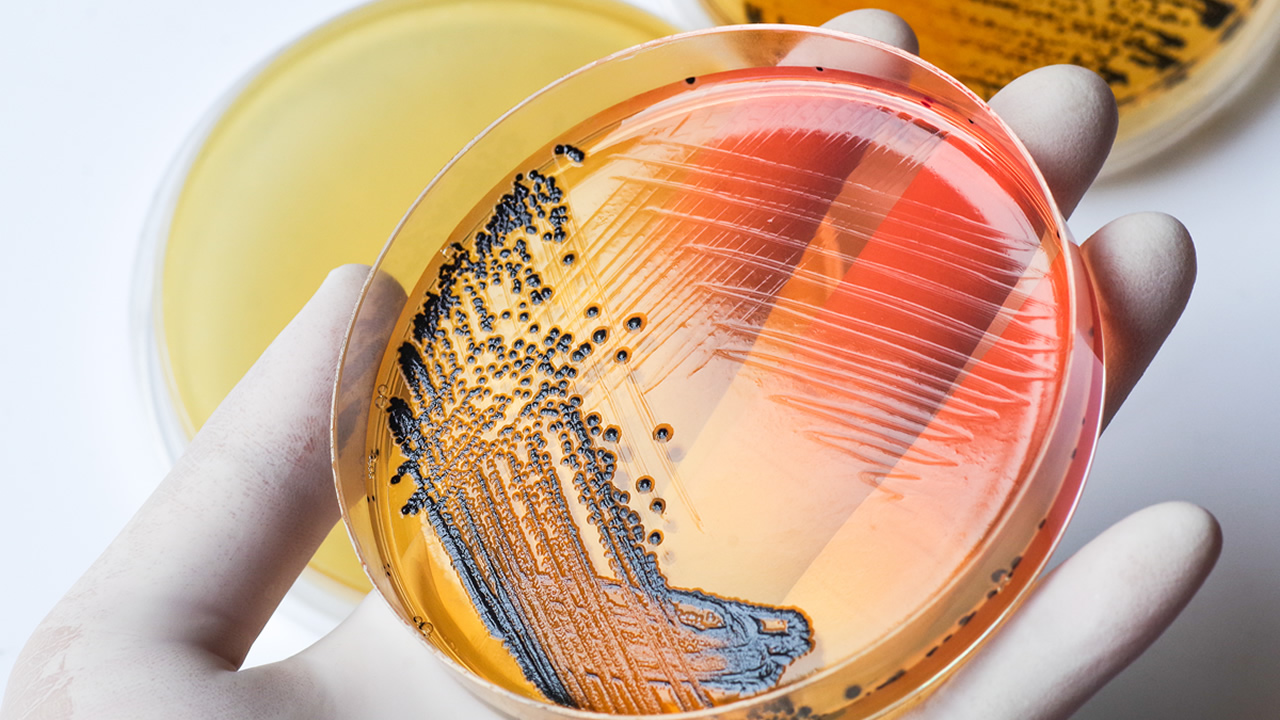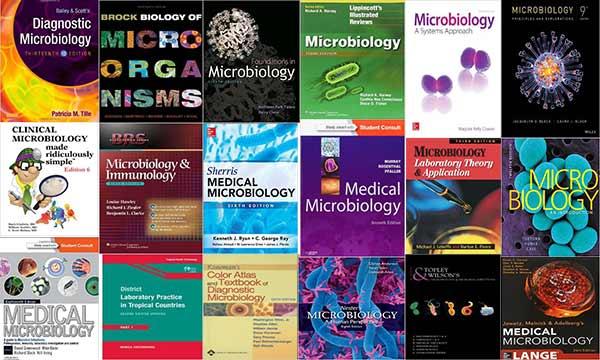Fundamental Principles Of Bacteriology by Salle, A. File Type: Online Number of Pages: 642 Description This book has been written for those who are beginning the study of bacteriology and especially for those who plan to specialize in the subject. Founded in 1932, the journal Mikrobiologiya (Microbiology) covers a wide range of problems in the areas of fundamental and applied microbiology. The journal publishes experimental and theoretical papers, reviews of trends in a. Full text Full text is available as a scanned copy of the original print version. Get a printable copy (PDF file) of the complete article (387K), or click on a page image below to browse page by page. Lectures Series on Water Waste Water Engineering by Prof C. Murty Department of Civil Engineering, IIT Madras. F GENERAL MICROBIOLOGY FACT SHEET Pathogen Genus species Disease Risk Group Host Range ransmission Signs Symptoms Incubation Fact Micrograph Bacteria. Test and improve your knowledge of Fundamentals of Microbiology with fun multiple choice exams you can take online with Study. com Fundamental of Food Microbiology. Download with Google Download with Facebook or download with email. Fundamental of Food Microbiology. Fundamental of Food Microbiology. The Study Quizzes test your knowledge of the important concepts in each chapter. Capturing these developments, Fundamental Food Microbiology, Fifth Edition broadens coverage of foodborne diseases to include new and emerging pathogens as well as descriptions of the mechanism of pathogenesis. Written by experts with approximately fifty years of combined experience, the book provides an indepth understanding of how to reduce. The overview of the topics, authored by more than 80 specialists, is one of the broadest in the field of environmental microbiology. The overview of the topics, authored by more than 80 specialists, is one of the broadest in the field of environmental microbiology. The branches of microbiology can be classified into pure and applied sciences, or divided according to taxonomy, as is the case with bacteriology, mycology, protozoology, and phycology. There is considerable overlap between the specific branches of microbiology with each other and with other disciplines, and certain aspects of these branches can extend beyond the traditional scope of. Alcamo's Fundamentals Of Microbiology 9th Edition PDFAuthorJeffrey C. Pommerville File size 109 MB Year2009 PagesNA LanguageEnglish File formatPDF Book DescriptionAlcamos Fundamentals of Microbiology 9th (ninth) EditionYou May Also Like: ABC Of Kidney Disease PDFAlcamo's Fundamentals Of Microbiology 9th Edition PDF, Alcamo's Fundamentals Of. This book is a treatise on microbial ecology that covers traditional and cuttingedge issues in the ecology of microbes in the biosphere. It emphasizes on study tools, microbial taxonomy and the funda Syllabus Biology 2420 Microbiology for the Health Sciences The Microbiology for the Health Sciences class provides an overview of the microbial world and the techniques to study it. Fundamental nucleic acid chemistry including replication, genetic code, protein synthesis, metabolic regulation, and. 6 fundamental food microbiology v. development of early food microbiology (before 1900 a. ) It is logical to comprehend that our early Homo ancestors, the hunters and gatherers, were aware of food spoilage and foodborne diseases. BIOL 2261 Fundamental Microbiology 3 Class Hours 0 Laboratory Hours 3 Credit Hours Prerequisite: A grade of C or better in BIOL L. This course will explore basic principles and techniques of microbiology. Students will learn about the various morphologies and metabolic processes within microbes and their relationships to humans. The golden era of food microbiology has begun. All three areas of food microbiology beneficial, spoilage, and pathogenic microbiology are expanding and pro Fundamental food microbiology Bibek Ray, Arun K Bhunia Published in 2014 in Boca Raton by CRS Press, Taylor Francis Group, an informa business Preface to the Fifth Edition The golden era of food microbiology has begun. All three areas of food microbiology, beneficial, spoilage, and pathogenic microbiology, are expanding and progressing a Food Microbiology Inspection Methods 101 Fundamental Food Microbiology Objectives 1. Identify the basic types of microbes. Welcome on the site Department of Fundamental Microbiology hosted by the University of Lausanne This site contains policy information for the BIOL 2310 Fundamental Microbiology Lab Course taught at Georgia State University under the administration of Robert Maxwell, Ph. Maintaining the high standard set by the previous bestselling editions, Fundamental Food Microbiology, Fourth Edition presents the most uptodate information in this rapidly growing and highly dynamic field. Revised and expanded to reflect recent advances, this edition broadens coverage of foodborne diseases to include many new and emerging pathogens, as well as descriptions of the mechanism. Syllabus for BIOL 2310 Fundamental Microbiology Lab at Georgia State University Here is the best resource for homework help with SC 246: Fundamentals of Microbiology at Kaplan University. Find SC246 study guides, notes, and practice Buy Fundamental Food Microbiology on Amazon. com FREE SHIPPING on qualified orders Learn fundamental microbiology with free interactive flashcards. Choose from 500 different sets of fundamental microbiology flashcards on Quizlet. 4shared is a secure, intuitive and incredibly easy to use service that helps you store all important data, photos and media in one place. Access anytime from everywhere. Syllabus Course Home Syllabus Meet the Instructors; Meet the TAs; Biochemistry Types of Organisms, Cell Composition To succeed in this course you will need to be familiar with the fundamental concepts of atoms, chemical compounds, and chemical bonds. com: Fundamental Food Microbiology, Fifth Edition ( ) by Bibek Ray; Arun Bhunia and a great selection of similar New, Used and Collectible Books available now at great prices. Watch Queue Queue years of the initial publication of Fundamental Food Microbiology. As indicated previously, this book was written primarily as a text for undergraduate food microbiology courses. The main objective was to provide basic and applied information in as many areas as possible in about 500 pages. In the second edition, the materials Comprehensive yet accessible, Fundamentals of Microbiology: Body Systems Edition, Third Edition is an essential text for nonscience majors in health science and nursing programs taking an introductory microbiology course. Microbiology is the simple study of microorganisms and is kind of a hard study. However, nothing is simple in this world. Take this quiz and find out for yourself. Enjoyable, lively, and challenging, Fundamentals of Microbiology is an essential text for students in the health sciences. New to the fully revised and updated Tenth Edition: New Investigating the Microbial World feature in each chapter encourages students to participate in the scientific investigation process and challenges them to apply the. Fundamental Food Microbiology, Fifth Edition has 8 ratings and 1 review. Golden era of food microbiology has begun. All three areas of food microbiology. Yo Micr GENERAL MICROBIOLOGY (BIO3302) SYLLABUS NEW YORK CITY COLLEGE OF TECHNOLOGY School of Arts and Sciences. Microbiology program is designed to provide students with a thorough understanding of the basis of the mammalian immune system and how it functions to protect the body from infectious agents in conjunction with an indepth knowledge and Fundamental Microbiology. CH2a: Subdivision of Microbiology CH2b: Microbial Noemnclature Chapter Objectives Differentiate bacteria, viruses, fungi, protozoans, and parasites of medical importance based on fundamental features and characteristics Compare the fundamental features of selected pharmaceutical important microorganisms Pommervilles Fundamentals of Microbiology, Eleventh Edition makes the difficult yet essential concepts of microbiology accessible and engaging for students initial introduction to. Fundamental principles of microbiology 1. FUNDAMENTAL PRINCIPLES OF MICROBIOLOGY Mr. Shivajirao Kadam College of Pharmacy, Kasabe digraj, sangli 2. Introduction Microbiology is the study of living organisms that are microscopic in size. Microbiology can be defined as the study of living organisms of microscopic size which. com: fundamental of microbiology. Interesting Finds Updated Daily. Amazon Try Prime All Go Search EN Hello. Sign in Account Lists Sign in Account Lists Orders Try. Welcome to the Companion Website dedicated to the text, Fundamentals of Microbiology, Tenth Edition. This Website is designed to: Provide you with study aids to prepare for your class. Help you master the material in the text. Expand the scope of the textbook. Start studying Chapter One: Fundamentals of Microbiology. Learn vocabulary, terms, and more with flashcards, games, and other study tools. The golden era of food microbiology has begun. All three areas of food spoilage, and pathogenic microbiologyare expanding and progressing at an incredible pace. What was once a simple process of counting colonies has become a sophisticated process of. FUNDAMENTAL MICROBIOLOGY INTRODUCTION John Sippel, Ph. FUNDAMENTAL MICROBIOLOGY SYLLABUS Course Meetings Course Description Texts Course Learning Outcomes General Class Policies General Lab Policies Dates Grading Missed Exams Academic Integrity FUNDAMENTAL MICROBIOLOGY COURSE OUTLINE Immunology Microbiology Infectious Disease. Session overview Classification Microbial nomenclature Microbial growth Microbial death Spore formation. Classification The Five Kingdom system is used to classify all organisms. Differentiation between organisms is based upon Goal of this note is to help you learn fundamental concepts in microbiology and develop your critical thinking skills on microbiological problems. It will introduce you to the microbial world and help you learn fundamental concepts in microbiology and the roles they play in our daily life. Microbiology is the study of microscopic organisms and their activities; within this orbit is the study of the distribution of the organisms, their characteristics, and their beneficial and harmful effects, especially in relation to the changes they make in their environment of which food is one. It balances the importance of the practical and applied needs of food microbiology with the inherent needs for scientific exploration of the fundamental issues of genetics, growth, survival, and control of prokaryotic and eukaryotic foodborne agents..











